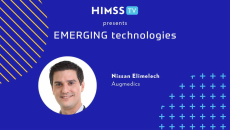Quality and Safety
Despite facing immense challenges since the pandemic began, the nursing workforce is nothing but resilient and resourceful. These stories show how RNs and NPs are embracing emerging tech to advance their mission to serve patients.
The California arm of the massive health system jumped from one to more than 50 value-based care quality contracts in eight years. It earned more than 50 quality awards in 2024 alone. And it continues to close care and disparity gaps.
Artificial intelligence has elevated the quality and efficiency of documentation, improved the completeness of that documentation and reduced charting time significantly. AI has also enabled more attentive and personalized care.
This month, companies including Oracle, Medtronic, Atropos, Elation, LeanTaas, Palantir and more released artificial intelligence and virtual reality enhancements that offer health systems a menu of efficiency tools.
The Illinois-based health system has, among many wins, retained 2,400 clinicians and staff who, by traditional patterns, it would not have expected to stay. And it has seen more than a 200% return on every dollar spent on employee tuition.
It adds a layer of safety at the point of compounding.
A VR tool at Moffitt Cancer Center helped relieve a patient's anxiety about undergoing treatment by enabling him to experience a simulation of the procedure. Dr. Sarah Hoffe, Moffitt's interim chair of GI oncology, shares more.
Red Cell Partners will provide artificial intelligence products for rapid real-world testing by the university's Health AI Assurance Laboratory. UMass will also provide data for assurance testing and receive fee-based reimbursement for the lab's services.
Developed with input from experts at 17 organizations, the open-source blueprint aims to establish a common set of expectations for what moves a healthcare organization from artificial intelligence experimentation to real-world integration.
The company's augmented reality surgical technology allows surgeons see a virtual spine overlay directly on a patient during an operation, eliminating the need to look at a monitor. Founder Nissan Elimelech explains.







